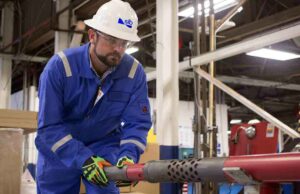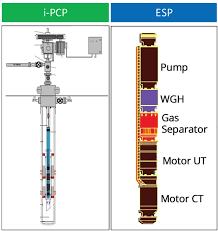OrientMCT
Artificial Lifting Design and Optimization

The Artificial Lifting Design and Optimization course is designed to provide participants with a comprehensive understanding of artificial lift systems used in the oil and gas industry to enhance production rates and optimize reservoir performance. This course focuses on the design, selection, and optimization of artificial lift methods to maximize hydrocarbon recovery from wells.
Throughout the course, participants will learn about the principles, types, and applications of artificial lift systems. They will explore different artificial lift methods, including gas lift, electric submersible pumps (ESP), rod pumping, progressive cavity pumping (PCP), and hydraulic pumping systems. Participants will understand the advantages, limitations, and operating considerations associated with each method.
Participants will gain insights into the factors that influence the selection of artificial lift systems, such as reservoir characteristics, fluid properties, wellbore conditions, and production profiles. They will learn how to analyze production data, diagnose production challenges, and determine the most suitable artificial lift method for specific well conditions.
The course will cover the design considerations and equipment used in artificial lift systems. Participants will learn about the components, installation, and operation of gas lift valves, submersible pumps, sucker rod systems, and other artificial lift equipment. They will understand the importance of proper equipment sizing, installation, and maintenance to ensure optimal performance and longevity.
Participants will explore optimization techniques for artificial lift systems. They will learn about monitoring and surveillance methods, including well testing, production data analysis, and real-time monitoring systems, to identify opportunities for improvement and troubleshoot performance issues. Participants will also gain insights into production optimization strategies, such as adjusting pump settings, optimizing gas lift injection rates, and implementing system enhancements.
The course will emphasize the importance of safety considerations in artificial lift operations. Participants will learn about risk assessment, well control measures, and best practices to ensure the well-being of personnel and the integrity of the artificial lift systems.

By the end of the Artificial Lifting Design and Optimization course, participants will have a comprehensive understanding of the principles, methods, and considerations involved in artificial lift design and optimization. They will be equipped with the knowledge and skills to analyze well conditions, select appropriate artificial lift systems, and optimize production rates. This course is valuable for production engineers, reservoir engineers, and professionals involved in well operations and production optimization who seek to enhance their expertise in artificial lift design and optimization.
Get In Touch!
Contact us for a quote or in case of any urgent queries please send us an email on: [email protected]
we will get back to you right away!